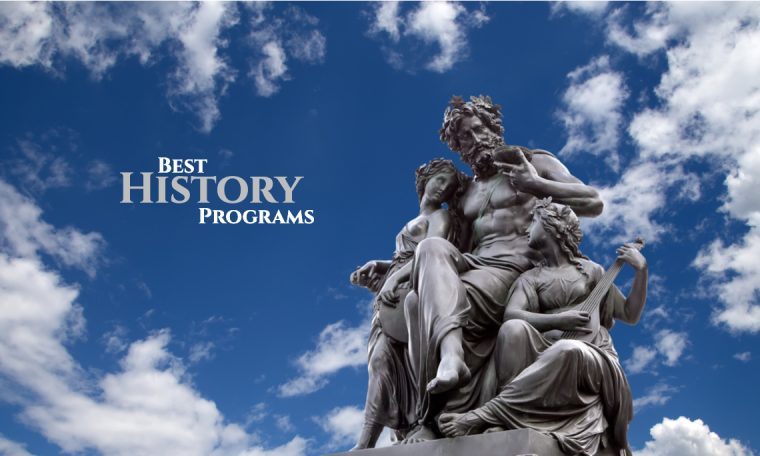| Rank | School | Location |
|---|---|---|
| 1 | Harvard University | Cambridge, Massachusetts |
| 2 | Columbia University In The City Of New York | New York, NY |
| 3 | Yale University | New Haven, Connecticut |
| 4 | University of Chicago | Chicago, IL |
| 5 | Princeton University | Princeton, New Jersey |
| 6 | University of California, Berkeley | Berkeley, CA |
| 7 | University of Wisconsin-Madison | Madison, WI |
| 8 | New York University | New York, NY |
| 9 | University of California, Los Angeles | Los Angeles, CA |
| 10 | Cornell University | Ithaca, NY |
This is a ranking of the best History Programs at colleges and universities in the U.S. This ranking is designed for students who want to be informed of college and degree options for studying History.
Studying history allows students to engross themselves in learning about the past. Often college History departments allow students to create customized degree plans.
Students learn about human history, and how to put history into context in the past and to illuminate the present. It teaches students to see time and events as discreet but also continuous, and us as inheritors of the past and better understand the present as a consequence.
History programs also teach students how to research and organize complex topics and how to properly contextualize the present. History graduates may find themselves working as historians, librarians, archivists, curators, analysts, or in other careers.
These on-campus colleges confer various bachelor's, master's, and doctorate degrees in History.
Colleges may download our badge.
The 10 Best History Programs
Harvard University
Cambridge, Massachusetts
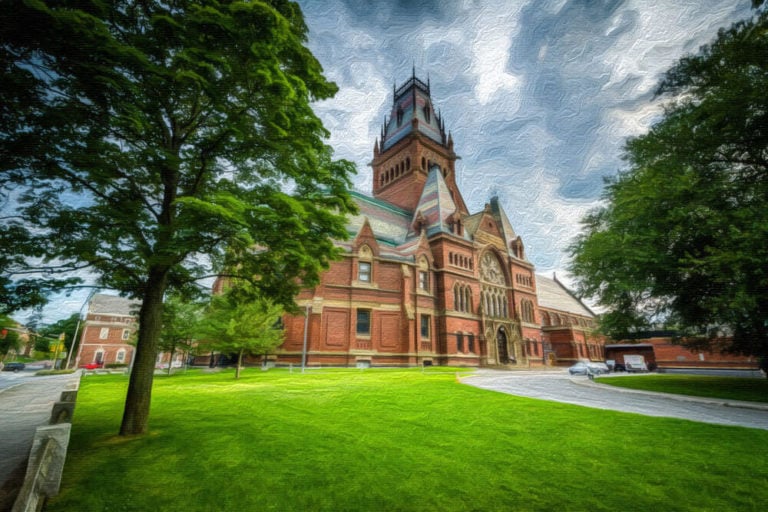
The Department of History at Harvard University offers both undergraduate and graduate studies.
Undergraduate students who select a Bachelor of Arts history major gain a solid foundation in research, writing, and historical analysis skills. Students benefit from a sequenced program, numerous campus and local resources such as the Houghton Library, and several study abroad opportunities.
Joint concentrations are available in Ancient History, East Asian History, Near Eastern History, African and African American History, and History and Anthropology. Graduates of the program go on to pursue careers in business, education, law, public policy, and several other fields, as well as higher education.
At the graduate level, a doctorate program is available. The Department does not offer a terminal master's degree. The doctorate program requires students to work with advisors to deepen the student's knowledge as scholars and future educators. The majority of students take seven years to complete the full dissertation program.
Students may study cross disciplinary fields through the Harvard Divinity School, Harvard Law School, Harvard Graduate School of Education, and several others. Resources available to graduate students include over 80 libraries, conferences, fellowships and grants, research centers and much more.
Admissions: Undergraduate applicants must submit academic transcripts, teacher recommendations, standardized test scores, and any appropriate supplementary material.
Graduate applicants apply to the Graduate School of Arts and Sciences at Harvard. Admissions requires prior transcripts, letters of recommendation, Statement of Purpose, GRE scores, and a writing sample.
Columbia University In The City Of New York
New York, NY
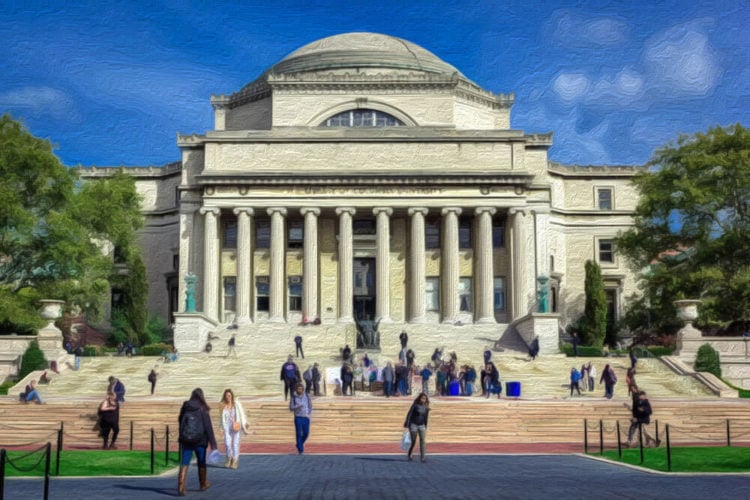
Columbia University's undergraduate history division encompasses a wide array of time periods and places around the world. The flexible curriculum, leading to a Bachelor of Arts in History, encourages students to explore a variety of ideas, interpretive models, and brands of history.
This allows students to develop strong analytical and critical writing skills. Professors emphasize the use of both primary and secondary sources in research. Undergraduate history majors must complete nine history courses, four specialization courses, three courses outside of the specialization area, and two seminars.
The Graduate program primarily offers a PhD program that incorporates the requirements for a Master of Arts and a Master of Philosophy degree sequentially within the curriculum.
The Department does not accept students seeking a terminal master's degree. However, there are two independent MA programs associated with the Department.
First is a dual Master of Arts/Master of Science degree in International and Global History which is available in partnership with the London School of Economics. The second program is an Master of Arts in History and Literature based at Columbia's campus in Paris.
The department offers 13 fields of study including Africa, Ancient, East Asia, Jewish, Medieval Europe, Socio-Medical Sciences, and more. Though professors encourage students to engage in multidisciplinary study and to cross traditional historical boundaries.
All courses emphasize source analysis and empirical research as the foundation for professional historical writing.
Admissions: Freshman applicants must submit high school transcripts, SAT or ACT scores, and teacher recommendations.
Graduate applicants apply to the Graduate School of Arts and Sciences. Students must submit academic transcripts, a personal statement, letters of recommendation, and a writing sample of no more than 20 pages. Admissions does not require standardized test scores for graduate students.
Yale University
New Haven, Connecticut
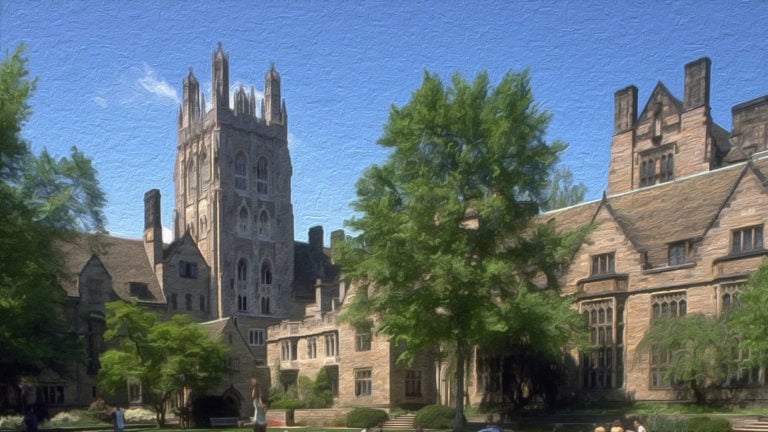
Having taught history courses since the 1760's, Yale has one of the most accomplished Departments of History in the nation. Such an extensive academic history naturally includes renowned faculty members and prestigious awards including Pulitzer Prizes, National Humanities Medals, National Book Awards, and many others.
Undergraduate students in the Bachelor of Arts in History program study a wide array of topics from politics and government to sexuality and culture from a broadly humanistic perspective. In addition to analytical and critical thinking skills students also develop effective storytelling talents that appeal to broad audiences. Nearly every region and time period are available to specialize in.
Students may choose to study a wide range of courses through the Global Track or to narrow their studies through the Specialist Track. In both tracks, students must complete a total of 10 courses and complete a one-semester or two-semester senior essay. A dual Bachelor of Arts/Master of Arts track is also available.
At the graduate level, the History Department offers two programs, one in History and one in History of Science and Medicine. Degrees available include the Master of Arts, Master of Philosophy, and the Doctor of Philosophy. Students participate in small classes typically using the seminar method and have constant access to faculty advisors for individual guidance.
Admissions: First year applicants must submit high school transcripts, essay questions, standardized test scores, and a minimum of two letters of recommendation. Admissions may request an interview.
Graduate applicants must submit prior transcripts, a statement of purpose, three letters of recommendation, a short book review of up to 1,000 words, and an academic writing sample of 25-pages or less. The History department does not require GRE scores.
Admissions does not accept graduate level transfer credits to the History department.
University of Chicago
Chicago, IL
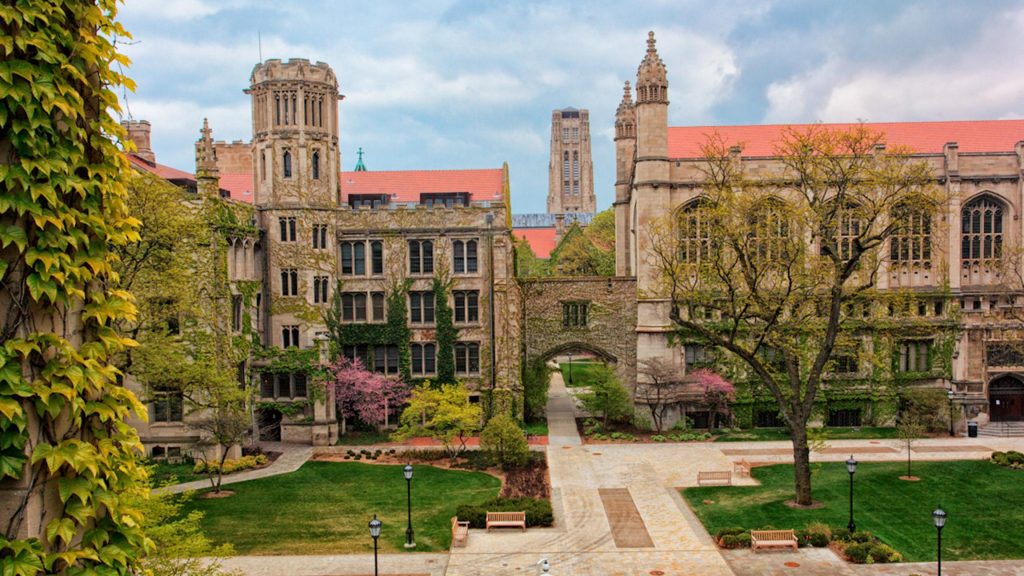
The University of Chicago's Department of History boasts of excellent, nationally recognized programs for both undergraduate and graduate students, cutting-edge research, and faculty expertise covering six continents and the bulk of recorded history.
Undergraduate students in the Bachelor of Arts in History program receive a broad educational experience with classes emphasizing the need for concrete, researchable questions. Students practice locating sources, weighing evidence, and crafting educated arguments.
Professors teach in small seminar style classes and encourage discussion and debate among students. The Department encourages double majors, with many students taking complementary course work in the areas of language, philosophy, political science, and more. There are over 80 undergraduate history courses available each year.
Graduate students in the PhD program have access to interdisciplinary workshops, academic conferences, seminars, tutorials, and colloquia for networking and intellectual exchange. There are more than 25 fields of study available in which students may specialize including Digital, Intellectual, Legal, Race, and Urban history.
Within the first two years of study, students must complete 15 graduate-level courses and pass at least one foreign language translation examination. By the third year of study, graduates must complete three oral field examinations, one of which may be in a comparative discipline to history.
Admissions: First year applicants must submit high school transcripts, secondary school report, two letters of recommendation from teachers, a personal essay, and a supplemental short essay on why the applicant wishes to attend the University of Chicago. Students may submit standardized test scores or may opt to select the University's test-optional application method.
Graduate applicants must submit previous official transcripts, a statement of purpose, and three letters of recommendation.
Princeton University
Princeton, New Jersey
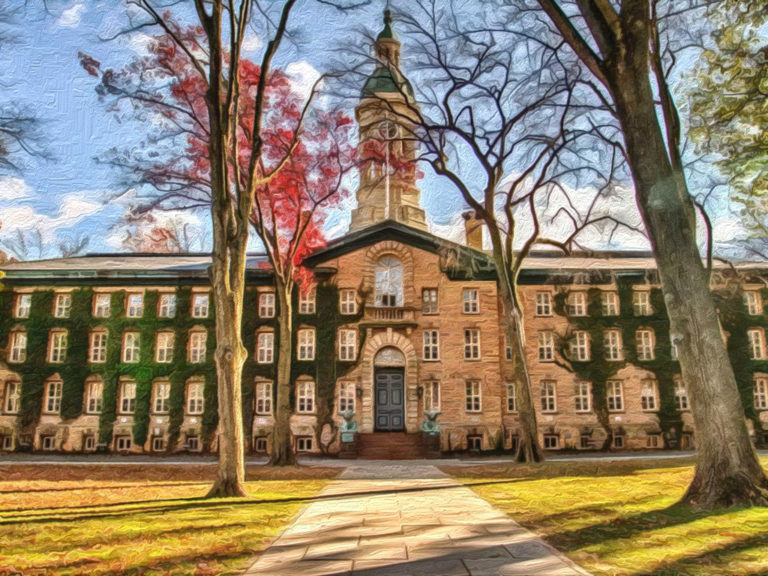
The History Department at Princeton University offers around 40 undergraduate courses annually. Students gain a plethora of historical perspectives including culture, gender, political, environmental, and social.
Students who select a Bachelor of Arts History concentration must take a minimum of one course in the following areas:
- American, European
- Non-Western, and Pre-Modern History
All undergraduate History majors must complete two junior papers and a 75-page senior thesis.
Graduate students may enroll in the doctoral program. Students may complete the full curriculum within five years. The first two years include coursework, language training, and two original research papers. Students use years three through five to research and write their dissertation and may also teach some undergraduate classes.
Both undergraduate and graduate students have access to networking with visiting research collaborators, a unique History of Science program, and interdisciplinary study. The Department maintains connections with several other academic areas including the Princeton Institute for International and Regional Studies and the Woodrow Wilson School of Public and International Affairs.
Admissions: In addition to the coalition or common application, freshman applicants must complete the Princeton Supplement which includes a series of short answer and essay questions. Additional application material must include high school transcripts, a mid-year school report, standardized test scores, and letters of recommendation from a counselor and two teachers.
Graduate students must submit to the Princeton Graduate School prior academic transcripts, a statement of academic purpose, a current resume or CV, and letters of recommendation.
University of California, Berkeley
Berkeley, CA
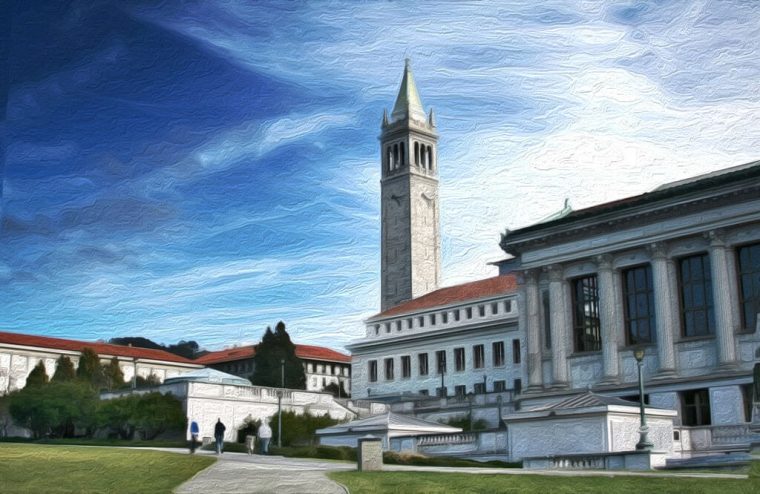
The Department of History at Berkeley is one of the most nationally recognized programs within the University's College of Letters and Science. The Department maintains a long and extensive engagement with the History of Asia in particular, and has a reputation within the study of Ancient, Medieval, Modern European, Latin American, and United States history.
Undergraduate Bachelor of Arts History majors must complete 12 courses, one of which may be from a different department. Students must also take at least one course from the following areas: Antiquity, the Classical Period, and the Medieval Period.
History majors have the flexibility to create their own Field of Concentration. The Department does offer some sample fields to help students in their selection such as concentrations defined by time period, geographical area, and theme.
Graduate students who do not have a prior master's degree may obtain one while working towards the PhD. Students with previous graduate work may have up to two equivalent courses transferred towards the PhD course requirements.
Students may need to complete one to four language requirements based on their field of study. Students have six to seven years to complete all course work and dissertation research. A terminal master's degree is not available.
Admissions: Undergraduate freshman applicants must meet the following minimum requirements: Have a minimum 3.0 GPA in the last two years of high school, submit standardized test scores, and meet the A-G subject course requirements.
Strong graduate applicants will have a background in history, some language preparation, and a minimum GPA of 3.0. Graduate applicants must submit previous transcripts, standardized test scores, a Statement of Purpose that does not exceed three pages, a scholarly writing sample, and three letters of recommendation.
University of Wisconsin-Madison
Madison, WI
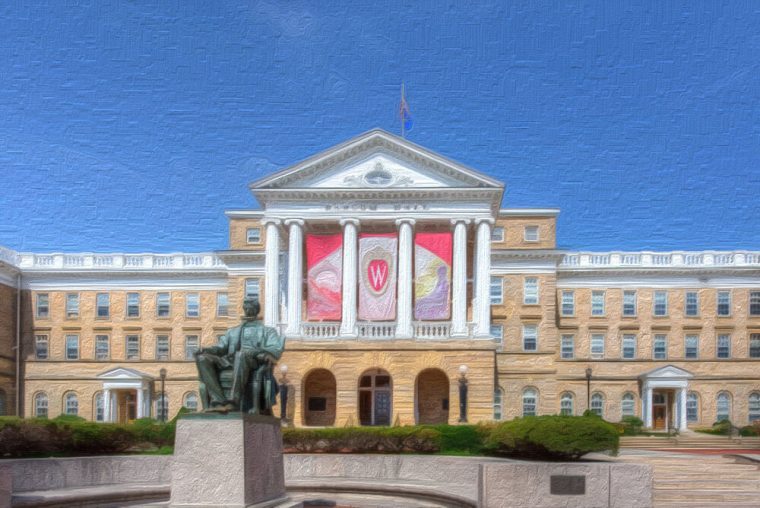
The University of Wisconsin at Madison has a substantial History department comprised of over 400 undergraduate majors, 130 graduate students, and 60 faculty members. All majors complete research projects working directly with our distinguished faculty.
Undergraduate students must complete a minimum of 30 credits in History or History of Science to complete the Bachelor of Arts history major. The curriculum emphasizes geographic and chronological breadth and a writing and research sequence.
Students have the option to specialize in international issues through the Global track. Students should note, however, that this is an unofficial track not recorded on final transcripts.
Overall, students gain experience in intellectual rigor, communication, collaboration, and understanding of contemporary issues in the light of their historical contexts.
Graduate students have the option of a terminal Master of Arts degree or a Doctor of Philosophy program, which includes a Master of Arts degree in History or the History of Science, Medicine, and Technology.
A Bridge Program and joint PhD programs are also available. Formal concentration tracks are available in Gender and Women's History, Jewish History, and the War in Society and Culture Program.
Admissions: Freshman applicants must submit high school transcripts, official test scores, two essays, and one letter of recommendation. Admissions looks for applicants who demonstrate leadership, community service, and creativity.
Graduate applicants must submit undergraduate transcripts, GRE test scores, a Statement of Purpose, an updated resume, and three letters of recommendation.
New York University
New York, NY
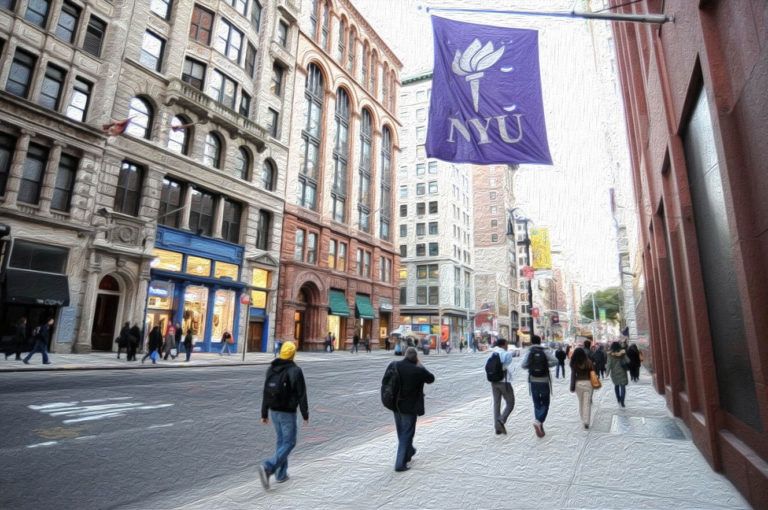
Undergraduate students at New York University have several academic tracks to select from available through the History Department.
Those include:
- Bachelor of Arts History major
- History minor
- Global Liberal Studies double major
- Global Public Health joint major
- Native American and Indigenous studies
- dual Bachelor of Arts/Master of Arts program.
The History major requires 36 points, or about nine courses in History with at least five courses being at the advanced level. Students must also complete a History workshop and one capstone seminar.
The workshop course is a prerequisite to the capstone course. Students may take the workshop in any geographical or temporal area of interest. The workshop helps prepare students in key areas including reading primary sources and analyzing historical arguments.
Graduate students may enroll in the Master of Art in History, Master of Art in Archives and Public History, or the Doctoral program. Several joint PhD tracks are also available.
The Master of Arts in History requires 32 points of coursework with a thesis at the end. Full-time students must complete the program within three semesters. Students may select the appropriate classes to complete the concentrations in Archives or Public History. Students must also complete a foreign language requirement within the first year.
PhD students must complete 72 points of coursework within the first three years of study. Several major fields of study are available including: the African Diaspora, the Atlantic World, Latin America and the Caribbean, and South Asia.
All students have access to the History Department's Global program which includes visiting professors and scholars from around the world, the New York Center for Global Asia, South Asia at NYU, and NYU Abu Dhabi.
Admissions: Freshman applicants must submit the online common application, high school transcripts, a mid-year report, standardized test scores, a counselor recommendation, and two teacher evaluations.
Graduate students must submit previous official transcripts, a one to two-page statement of purpose, a resume or CV, three letters of recommendation, and a writing sample of no more than 35 pages. Admissions does not require GRE scores for graduate applicants.
University of California, Los Angeles
Los Angeles, CA
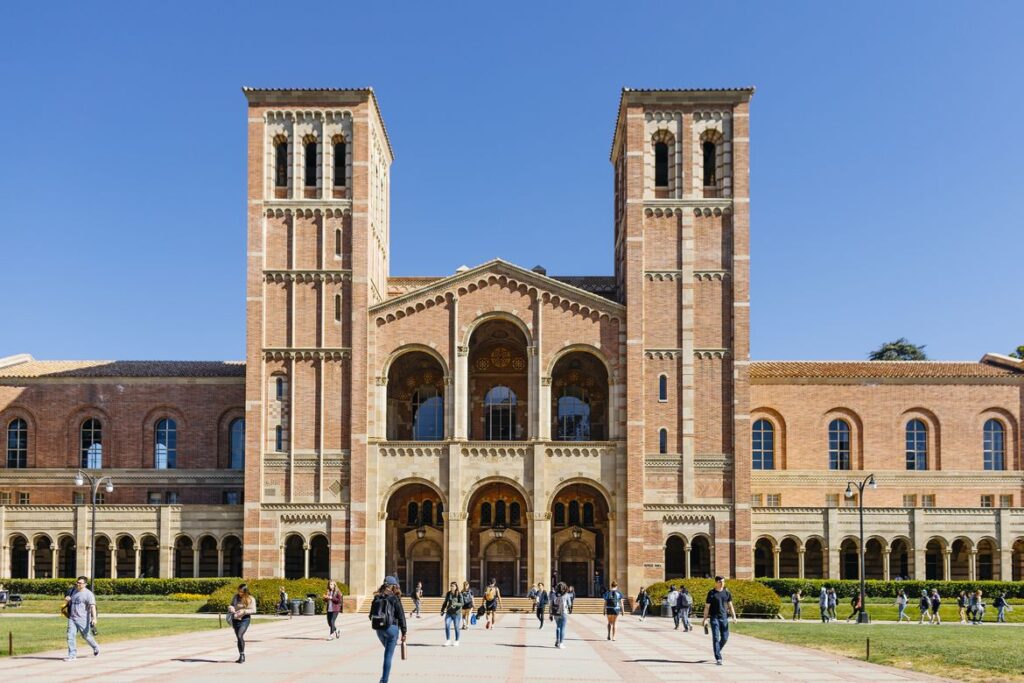
At UCLA the Bachelor of Arts in History requires a total of 16 courses for the major. These courses must include two US History classes, two non-Western History classes, and two European History classes.
The Bachelor of Arts track does not require students to complete a language course, however, students who plan on pursuing further education should strongly consider some language preparation.
Undergraduate students have access to the History Writing Center and several study abroad opportunities. A History of Science Minor is also available.
Graduate students enter the PhD program, there is no terminal master's degree available. The curriculum requires students to have reading knowledge of at least one foreign language. Students must complete a total of 36 units, or nine upper division and graduate courses.
There are 12 graduate fields of study including China, Europe, Middle East, South and South East Asia, and the History of Science, Medicine, and Technology. The History Department also supports several cross-field clusters with special emphasis on Atlantic History and the History of Women, Men, and Sexuality.
Admissions: Incoming freshman applicants must submit high school transcripts that meet the A-G subject requirements and standardized testing scores. Personal insight questions are also part of the online application. Admissions does not require letters of recommendation but will consider them with any supplemental application material.
Graduate applicants must submit all prior transcripts, a Statement of Purpose, a Personal Statement, and letters of recommendation.
Cornell University
Ithaca, NY
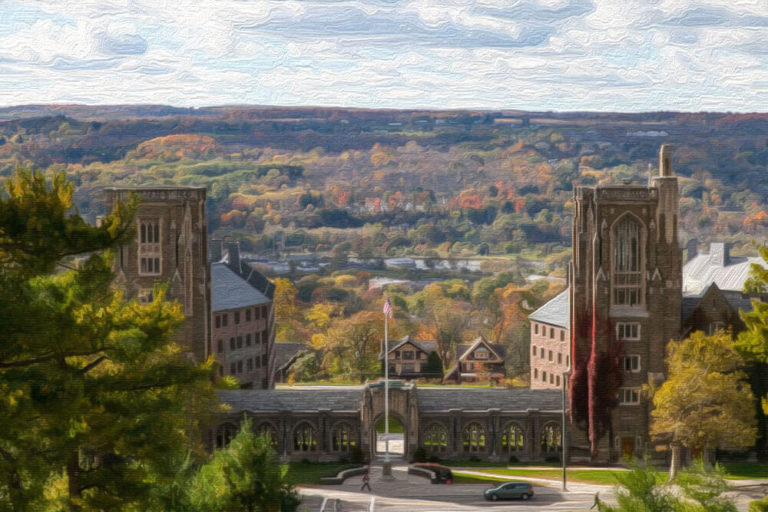
At Cornell University, the College of Arts and Sciences hosts the Department of History. The Department has a reputation in several areas of study including Ancient, Medieval, Caribbean, and Asian history.
Undergraduate students find the Bachelor of Arts History program to be excellent preparation for further graduate study, entry into law school, or a steppingstone into the professional field.
The undergraduate program emphasizes critical thinking and superior writing skills beneficial to student's prospects. History majors must complete nine history courses with a grade of 'C' or higher.
Independent research, History honors, History minor, and an Interdisciplinary minor in the History of Capitalism are also all available.
The PhD program maintains a comprehensive and flexible curriculum able to accommodate the various needs, backgrounds, and objectives that students bring to the program. Graduate students must select a Special Committee, comprised of three faculty members, to guide them through the PhD program.
The Committee may include faculty members from other departments. Students have access to a variety of advanced seminars the first two to three years of study. During this time students also have the opportunity to act as a teaching assistant in a lecturer course.
Admissions: First time freshman applicants must submit the Common or the Universal College Application, official high school transcripts, a mid-year report, a counselor letter of recommendation, two teacher evaluations, and standardized test scores.
Graduate students apply to the Cornell Graduate School and must submit previous official transcripts, a statement of purpose, and three letters of recommendation. The History Department also requires a 20 to 25-page writing sample displaying historical research abilities and GRE test scores.
Ranking Methodology:
Successful Student ranks schools and programs for the benefit of students. With this ranking, we looked at the ranking of schools per the rank order at AcademicInfluence.com, which ranks schools by the influence that the school's faculty and alumni have had in academic publications and citations in the subject of History.
We then looked at the degrees offered, the overall quality of the programs, and academic influence, and made the final determination and rank order. For a more thorough explanation of our ranking methodology see our College Calculator.
More resources:
